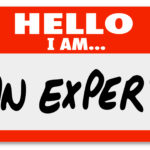There’s a ritual that takes place at the beginning of each new year.
Experts from different fields make predictions: Who will be the next Democratic nominee? What will be the trends in business innovation? Will the economy enter a recession? Will Brad and Jen finally reunite (will you ever find love, Brad?)
Predictions are popular because they appeal to human nature. They insert an illusion of certainty into an uncertain world. For the confused masses trying to make sense of an increasingly complex world, predictions—particularly those delivered with confidence and exaggerated hand gestures—restore some sense of comfort and clarity into our lives.
But here’s the problem: These predictions are wrong far more often than we assume.
The reason? We see only the hits. But we don’t see the misses.
If an economist correctly predicts the next recession, she’s branded a genius and showered with praise and lucrative speaking engagements. But we don’t see the thousands of economists who got it wrong. An article titled “I tried to predict the next recession, and I wasn’t right at all” isn’t click-worthy (though I would certainly click on it).
What’s worse, these self-proclaimed prophets are rarely called out for their errors. They aren’t fired. They aren’t even benched. No one says, “Maybe you should sit this one out, Dr. Stu, since your predictive batting average is less than 10%.” Because predictions are usually far into the future, people don’t even remember Dr. Stu’s prediction of an impending apocalypse. By the time a prediction is proven wrong, the world has moved on to the next shiny piece of breaking news.
Every now and then, Dr. Stu will get a prediction right. But it’s not because he’s got divine levels of foresight. It’s because he got lucky. As Theodore Levitt puts it, “It’s easy to be a prophet. You make twenty-five predictions and the ones that come true are the ones you talk about.” If you take shots all day, you’ll eventually hit the target. But that doesn’t make you a good marksman.
Most predictions should be ignored for another reason: They’re vague—and intentionally so. There’s a reason why your daily horoscope predicts that “you’ll have doubts about whether you made the right decision” (who goes a day without doubting they made the right call about something?) or that “you’ll stabilize one financial situation” (you can always think of one financial “situation” that you “stabilized”). These statements are so vague that it’s difficult to prove them wrong. And because humans tend to default to truth, you’ll look for instances that confirm rather than disconfirm these predictions.
In the end, we have a choice.
We can search for self-proclaimed prophets that give us comfort in times of uncertainty.
Or we can embrace uncertainty and see possibility in it instead of danger.
P.S. To learn a series of super effective techniques for embracing uncertainty and using it to your advantage, pick up a copy of my forthcoming book, Think Like a Rocket Scientist, and head to Chapter 1 (Flying in the Face of Uncertainty).
If you pre-order the book now (Amazon, Barnes & Noble, and IndieBound), you’ll get digital access to it within seven days of your order, so you can start reading it months before it’s released to the public. You’ll also get the pre-order bonuses listed on this page: rocketsciencebook.com.
I’ve been ecstatic about the early reviews. The book was named a “must read” by Susan Cain (NYT Bestselling Author of Quiet), “endlessly fascinating” by Daniel Pink (NYT Bestselling Author of Drive and A Whole New Mind), and “bursting with practical insights” by Adam Grant (NYT Bestselling Author of Originals). The book was also selected by Adam Grant as his # 1 pick among his top 20 books of 2020.
Bold


